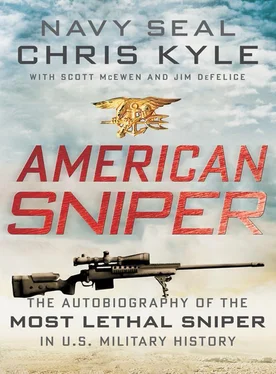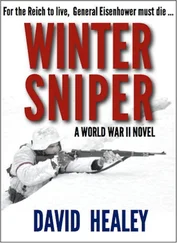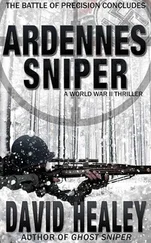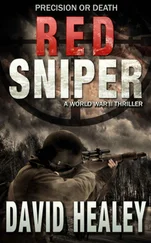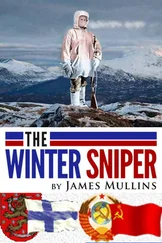I still have that hundred dollars.
While I got into a lot of fights, I didn’t start most of them. My dad made it clear I’d get a whuppin’ if he found out I started a fight. We were supposed to be above that.
Defending myself was a different story. Protecting my brother was even better—if someone tried to pick on him, I’d lay them out. I was the only one allowed to whip him.
Somewhere along the way, I started sticking up for younger kids who were getting picked on. I felt I had to look out for them. It became my duty.
Maybe it began because I was looking for an excuse to fight without getting into trouble. I think there was more to it than that; I think my father’s sense of justice and fair play influenced me more than I knew at the time, and even more than I can say as an adult. But whatever the reason, it sure gave me plenty of opportunities for getting into scrapes.
My family had a deep faith in God. My dad was a deacon, and my mom taught Sunday school. I remember a stretch when I was young when we would go to church every Sunday morning, Sunday night, and Wednesday evening. Still, we didn’t consider ourselves overly religious, just good people who believed in God and were involved in our church. Truth is, back then I didn’t like going a lot of the time.
My dad worked hard. I suspect it was in his blood—his father was a Kansas farmer, and those people worked hard. One job was never enough for my dad—he had a feed store for a bit when I was growing up, and we had a pretty modest-sized ranch we all worked to keep going. He’s retired now, officially, but you can still find him working for a local veterinarian when he’s not tending to things on his small ranch.
My mother was also a really hard worker. When my brother and I were old enough to be on our own, she went to work as a counselor at a juvenile detention center. It was a rough job, dealing with difficult kids all day long, and eventually she moved on. She’s retired now, too, though she keeps herself busy with part-time work and her grandchildren.
Ranching helped fill out my school days. My brother and I would have our different chores after school and on the weekends: feed and look after the horses, ride through the cattle, inspect the fences.
Cattle always give you problems. I’ve been kicked in the leg, kicked in the chest, and yes, kicked where the sun doesn’t shine. Never been kicked in the head, though. That might have set me straight.
Growing up, I raised steers and heifers for FFA, Future Farmers of America. (The name is now officially The National FFA Organization.) I loved FFA and spent a lot of time grooming and showing cattle, even though dealing with the animals could be frustrating. I’d get pissed off at them and think I was king of the world. When all else failed, I was known to whack ’em upside their huge hard heads to knock some sense into them. Twice I broke my hand.
Like I said, getting hit in the skull may have set me straight.
I kept my head when it came to guns, but I was still passionate about them. Like a lot of boys, my first “weapon” was a Daisy multi-pump BB rifle—the more you pumped, the more powerful your shot. Later on, I had a CO 2-powered revolver that looked like the old 1860 Peacemaker Colt model. I’ve been partial to Old West firearms ever since, and after getting out of the Navy, I’ve started collecting some very fine-looking replicas. My favorite is an 1861 Colt Navy Revolver replica manufactured on the old lathes.
I got my first real rifle when I was seven or eight years old. It was a bolt-action 30-06. It was a solid gun—so “grown-up” that it scared me to shoot at first. I came to love that gun, but as I recall what I really lusted after was my brother’s Marlin 30-30. It was lever action, cowboy-style.
Yes, there was a theme there.
You’re not a cowboy until you can break a horse. I started learning when I was in high school; at first, I didn’t know a whole heck of a lot. It was just: Hop on them and ride until they quit bucking. Do your best to stay on.
I learned much more as I got older, but most of my early education came on the job—or on the horse, so to speak. The horse would do something, and I would do something. Together, we came to an understanding. Probably the most important lesson was patience. I wasn’t a patient person by nature. I had to develop that talent working with horses; it would end up being extremely valuable when I became a sniper—and even when I was courting my wife.
Unlike cattle, I never found a reason to smack a horse. Ride them till I wore them out, sure. Stay on them till they realized who was boss, absolutely. But hit a horse? Never saw a reason good enough. Horses are smarter than cattle. You can work a horse into cooperating if you give it enough time and patience.
I don’t know if I exactly had a talent for breaking horses or not, but being around them fed my appetite for all things cowboy. So, looking back, it isn’t very surprising that I got involved in rodeo competitions while still in school. I played sports in high school—baseball and football—but nothing compared with the excitement of the rodeo.
Every high school has its different cliques: jocks, nerds, and so on. The crew I was hanging out with were the “ropers.” We had the boots and jeans, and in general looked and acted like cowboys. I wasn’t a real roper—I couldn’t have lassoed a calf worth a lick at that point—but that didn’t stop me from getting involved in rodeos around age sixteen.
I started out by riding bulls and horses at a small local place where you paid twenty bucks to ride as long as you could stay on. You would have to supply your own gear—spurs, chaps, your rigging. There was nothing fancy about it: you got on and fell off, and got on again. Gradually, I stayed on longer and longer, and finally got to the point where I felt confident enough to enter some small local rodeos.
Bustin’ a bull is a little different than taming a horse. They buck forward, but their skin is so loose that when they’re going forward, you not only go forward but you slip side to side. And bulls can really spin. Let me put it this way: staying on top of a bull is not an easy matter.
I rode bulls for about a year, without a ton of success. Wising up, I went to horses and ended up trying saddle bronc bustin’. This is the classic event where you not only have to stay on the horse for eight seconds, but also do so with style and finesse. For some reason, I did a lot better in this event than the others, and so I kept with it for quite a while, winning my share of belt buckles and more than one fancy saddle. Not that I was a champion, mind you, but I did well enough to spread some prize money around the bar.
I also got some attention from the buckle bunnies, rodeo’s version of female groupies. It was all good. I enjoyed going from city to city, traveling, partying, and riding.
Call it the cowboy lifestyle.
Icontinued riding after I graduated high school in 1992 and started going to college at Tarleton State University in Stephenville, Texas. For those of you who don’t know it, Tarleton was founded in 1899 and joined the Texas A&M University system in 1917. They’re the third largest non-land-grant agriculture university in the country. The school has a reputation for turning out excellent ranch and farm managers as well as agricultural education teachers.
At the time, I was interested in becoming a ranch manager. Before enrolling, though, I had given some thought to the military. My mom’s dad had been an Army Air Force pilot, and for a while I thought of becoming an aviator. Then I considered becoming a Marine—I wanted to see real action. I liked the idea of fighting. I also heard a bit about special operations, and thought about joining Marine Recon, which is the Corps’ elite special warfare unit. But my family, Mom especially, wanted me to go to college. Eventually, I saw it their way: I decided I would go to school first, then join the military. Heck, the way I looked at it, doing that meant I could party for a while before getting down to business.
Читать дальше
